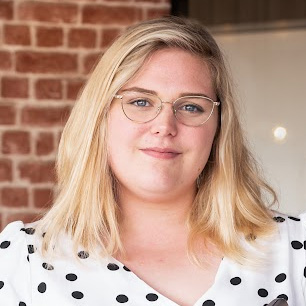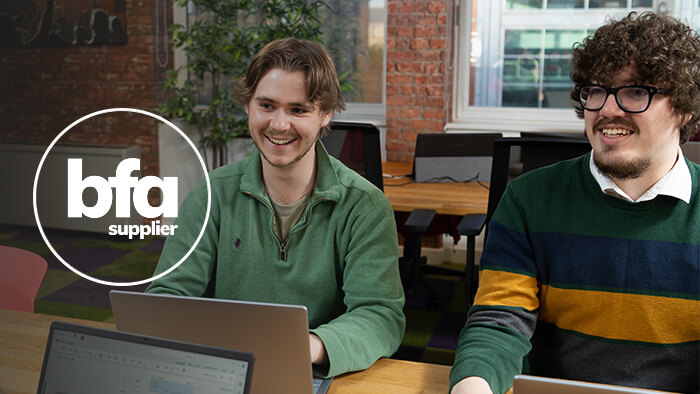Some of the Digital team recently enjoyed a few days in sunny Brighton, attending the amazing Brighton SEO event. Here, they joined a wide range of talks with speakers covering topics on the current and future worlds of SEO, Digital PR and PPC. With so much cross-channel innovation discussed, the team left buzzing with ideas to implement for clients. Here are the takeaways from the most impactful sessions they attended and what they mean for the future of search, strategy, and brand building.
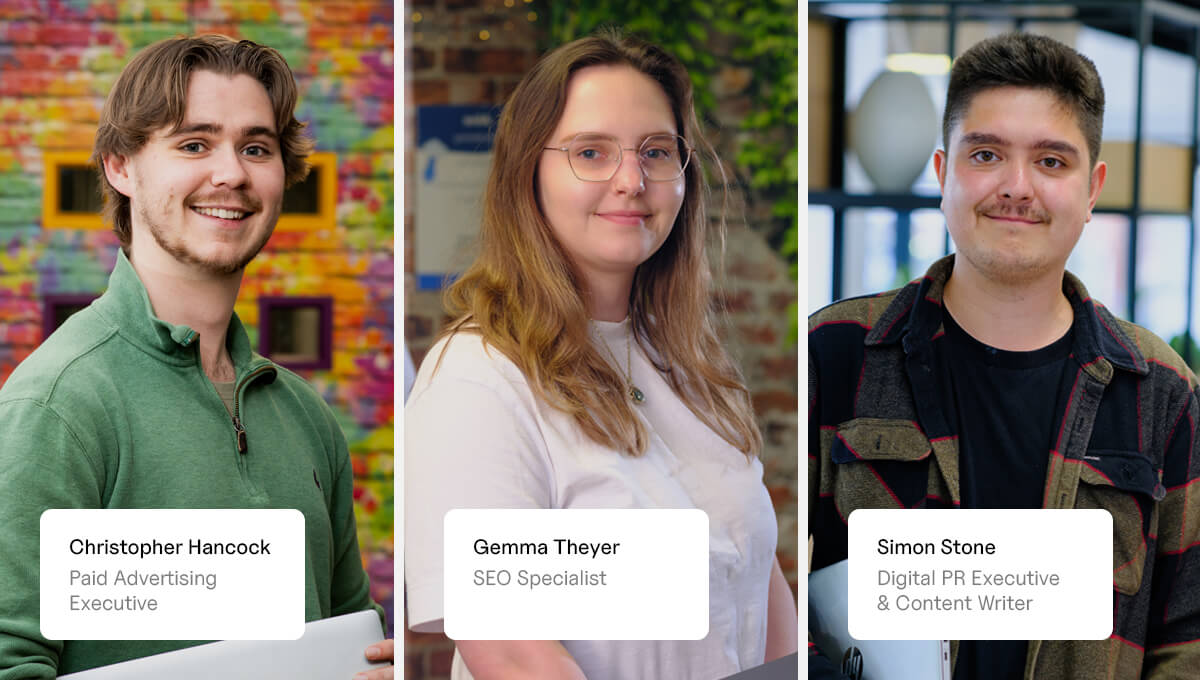
Gemma’s Talks: SEO at the Crossroads of Tech & UX
Vector Embeddings and the AI-Driven Future of Search
Gemma’s first session plunged into the technical side of modern SEO - vector embeddings. These numerical data models underpin recommendation systems and semantic search, powering engines that understand concepts instead of just keywords.
We learned how cosine similarity (the angle between embeddings in a vector space) helps identify the relevance of information, even when phrased differently.
Connecting your own datasets with tools like ChatGPT via embeddings prevents AI hallucinations, boosts data control, and keeps things fresh with real-time updates. Tools like Cloudflare Workers make integration accessible even without developer input.
Are Keywords Dead?
Spoiler alert: No. While AI overviews are reshaping SERPs, especially for mid and upper funnel queries, keywords still carry intent and remain critical.
The session dove into how younger users favour platforms like TikTok and Instagram, while older audiences still lean on Google. Understanding LLMs, their limitations, and the differences in user intent across platforms is vital.
One key concern is that AI models don’t understand JavaScript, so if your site is JS-heavy, AI can’t see it, meaning it pulls third-party information to represent your brand.
The takeaway: SEO is still king on Google, but optimising for AI discovery is increasingly important. Visibility, crawlability, and proactive brand reputation management are the new focuses.
What Does Google Want in 2025? Accessibility.
Digital accessibility is no longer just a preference, it’s going to be law. With the European Accessibility Act taking full effect in June 2025, all websites targeting European users need to meet specific standards.
Gemma’s final talk covered everything from alt-text best practices to keyboard navigation and pop-up accessibility. A few key tips:
- Avoid "click here" - it's bad accessibility UX and SEO
- Always include descriptive alt text
- Use focus traps for modals to avoid user frustration
- Avoid third-party accessibility overlays - they often cause more harm than good
Good alt text isn't about ticking boxes, it’s about empathy, describing both the content and context of an image so visually impaired users get the same value.
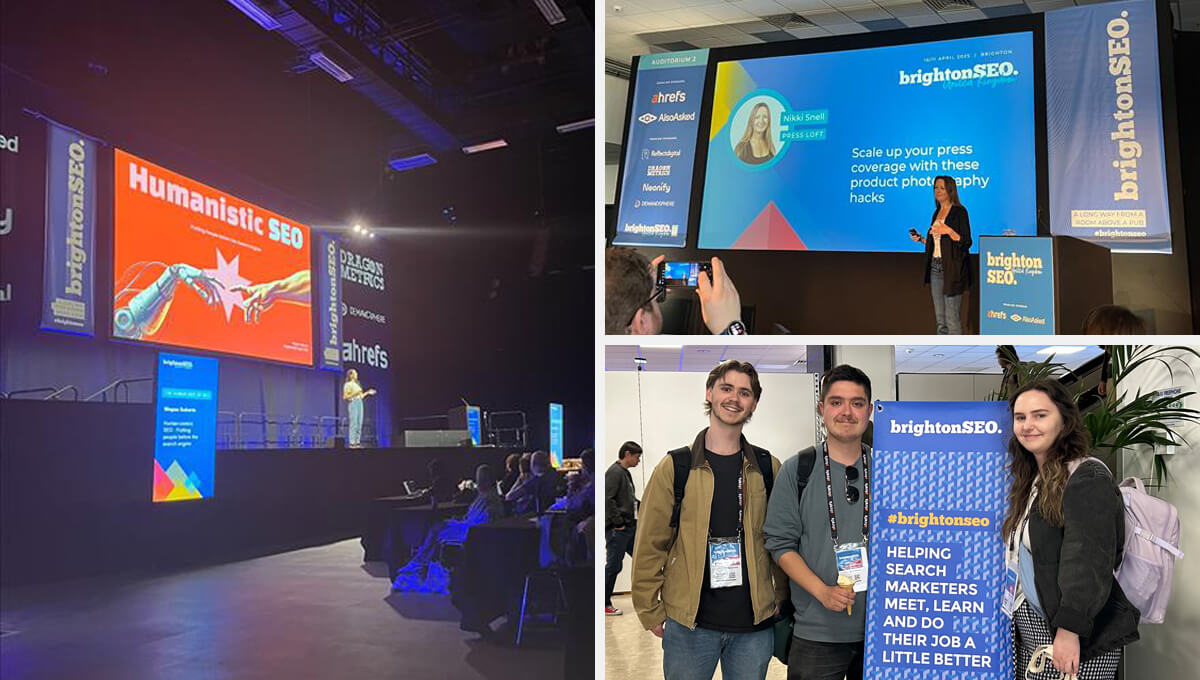
Simon’s Talks: The Evolving Role of Digital PR, Content, and Search
How Social Search Is Shaping Discoverability
Simon explored how social platforms are redefining search. Increasingly, we see users, especially younger audiences, search directly on Instagram, TikTok, or Reddit rather than on traditional search engines.
Social search isn't about ranking, it's about relevance and community. It serves the exploration phase of the funnel, and brands that show up here with authentic, useful content are more likely to be discovered and trusted.
For marketers, this means shifting focus to personalised, engaging content that feels native to the platform. It also means acknowledging that search has evolved from a platform to a behaviour.
How Digital Authority PR Is Redefining Brand Influence
With CTRs dropping and audience attention fragmented, Digital PR must evolve. The talk emphasised targeting the places where your audience already hangs out - from niche newsletters to forums and community hubs.
Instead of pitching with salesy intent, PR teams should aim to provide real value to journalists and users alike. If that doesn’t work, sponsorships might be the next best step.
At the end of the day, everything starts with awareness. If people trust you before they even search for you, you’ve already won half the battle.
Reimagining E-E-A-T
Expertise, Experience, Authority, and Trustworthiness are core to SEO, but this talk reminded us that storytelling brings it to life. From how-to guides to emotive narratives, it's about connecting with user intent and giving them a reason to believe in your brand.
Emotion builds authority in a human way. It’s about matching content to context and creating a memorable connection that moves beyond keywords.
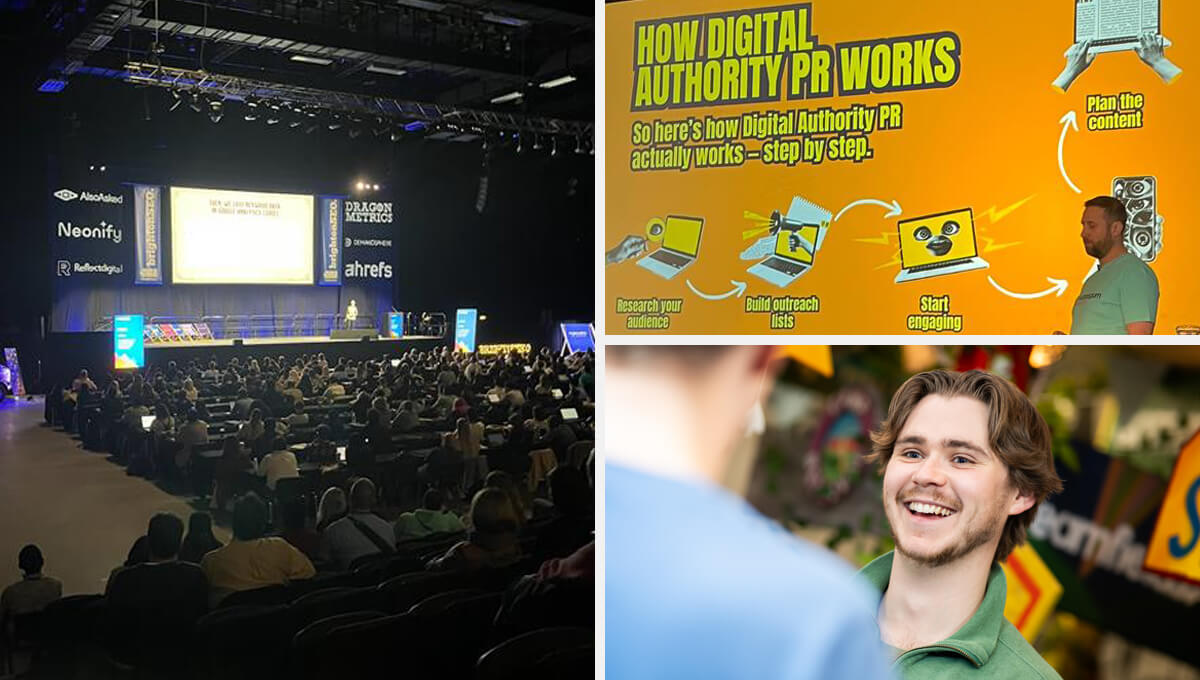
Christopher’s Talks: Hero Conference 2025
Holistic Search Success: PPC + SEO
At Hero Conf Brighton, the first talk dived into one of the most critical areas for marketing teams: breaking the silos between PPC and SEO. Despite being treated separately in many organisations, users only see one unified search results page. So, why aren’t our strategies aligned?
The talk advocated for a "Total Search" approach, where paid and organic teams collaborate to maximise visibility across search journeys. By combining keyword strategies, brands can drive increased traffic, reduce cost inefficiencies, and deliver broader SERP coverage.
Three pillars anchored the strategy:
- Increased search coverage
- Spend efficiency
- Relevance and quality score of content
It also highlighted the need for cohesive messaging across platforms, and consistent post-click experiences. As Google gets smarter about tracking user experience (UX), landing pages become a central point of convergence for both PPC and SEO.
Key takeaways included using PPC for quick wins while organic builds authority, running joint tests to optimise messaging, and keeping an eye on the potential cannibalisation between channels. SERP uniqueness, halo effects, and the user’s context all play a role. When both teams understand intent and journey stages, the result is not just better performance but also reduced acquisition costs.
Data Isolation vs Integration
Another highlight from Hero Conf addressed the ever-important challenge of data fragmentation. Marketers are often laser-focused on in-platform ROAS and efficiency, but without integration, we risk losing the big picture.
The speaker shared a great quote: "If brands are built over years, why do we measure them in quarters?" With demand driving ROAS more than marketing actions, siloed measurement can lead to poor strategic decisions.
Instead, integrated data enables:
- Holistic audience understanding
- Cross-channel strategic alignment
- Improved measurement and attribution accuracy
With today’s messy middle - a non-linear, complex consumer journey - isolated data just doesn’t cut it anymore. This was a call for marketers to step back and create better infrastructure for joined-up insight.
Microsoft Advertising: The Quiet Giant
Microsoft Advertising (MSA) has seen a quiet but powerful surge in market share, especially since its AI integrations. The launch of Co-Pilot (in partnership with OpenAI) brought new advertising formats into the Microsoft ecosystem - from text and product ads to multimedia and vertical-specific formats.
The talk highlighted impressive audience data:
- Users have 20% more buying power
- 49% more likely to be high-income
- +1.4 billion devices and 4-hour daily ad exposure window
With Edge now the second most popular browser on desktop and tablet and huge growth in in-game and in-app placements (thanks to partnerships with publishers and Activision), MSA is a serious contender for PPC.
What’s more, PMax + Search campaigns on MSA yield 3x ROAS and 32% lower CPA on average, showing that the platform’s AI-first strategy is already paying off. Lots of new features are expected to land in 2025, making it a space to watch.
Final Thoughts
Brighton SEO and Hero Conf 2025 gave a panoramic view of where organic search, paid ads, and digital PR are headed. Whether you're optimising for humans or machines, one message rang loud and clear: The future belongs to brands that combine creativity with cohesion. The results will follow if teams work together across platforms and data sets.



